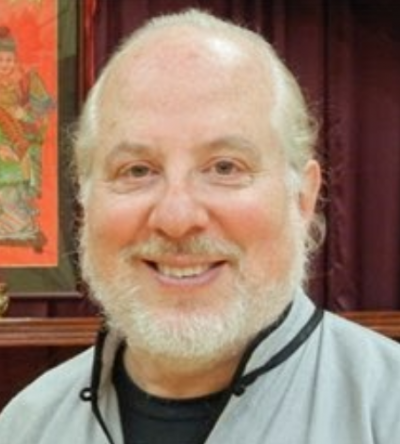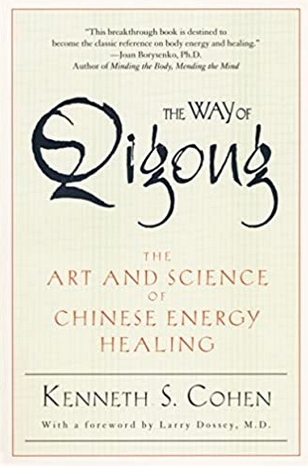

 Well, Phil, that’s a great question. I guess I’ve been very blessed in my life, because there are several wonderful unexpected gifts I’ve received. I think that happens to anyone who’s in a work that involves service to others. We don’t do this for recompense. We do it because it’s the work we love. But nevertheless, when an unexpected gift arrives, how wonderful. What a great blessing.
Well, Phil, that’s a great question. I guess I’ve been very blessed in my life, because there are several wonderful unexpected gifts I’ve received. I think that happens to anyone who’s in a work that involves service to others. We don’t do this for recompense. We do it because it’s the work we love. But nevertheless, when an unexpected gift arrives, how wonderful. What a great blessing.
So let me share one of these that happened, oh, it was several years ago. I had been invited to Taiwan to present at the International Conference on Daoist Studies. Daoism, of course, is the ancient philosophy and spiritual tradition of China. It underlies Tai Chi, Qigong, Chinese medicine, Chinese art. So it was quite an honor to present both a lecture and a workshop, and I decided to arrive a little bit early so I could visit with some old friends, people involved in Chinese tea culture, which I’m also involved in, martial arts, Qigong, and I especially wanted to visit some temples that I’d never seen before.
Well, during that early part of my trip, I really wanted to go to the town of Lugang. Lugang means "deer harbor." It’s an oceanside town that’s very famous for a temple dedicated to Ma Zu, the goddess of the sea. Remember, Taiwan is an island. So Ma Zu is a kind of patron saint, one could say, for the island of Taiwan. This particular temple is supposed to have some magical qualities associated with it. There was an ancient statue of Ma Zu that had turned black over the centuries from the amount of incense that had been burned in the temple, and people attributed miraculous cures to the healing power, to their prayers offered, prayers and rituals offered to Ma Zu.
So I took a taxi from the town where I was staying to Lugang, Deer Harbor, and to the temple. When I was done and had a wonderful time around the town and had some lunch, on the way back I again called for a taxi, and the taxi driver was a wonderful Taiwanese woman, who I think of as a force of nature, very dynamic, vibrant. Let me tell you something about me you probably don’t know. I really like having conversations with taxi drivers. To be frank, dare I say this, I generally prefer a conversation with a taxi driver to a conversation with a fellow Tai Chi practitioner or, let’s say, a tea farmer, again, because I’m involved in tea. Why do I say that? Because the taxi drivers really know what’s happening. They’ve got the insight... if I want a great restaurant recommendation, I’ll ask a taxi driver. If I want to know some fun places to visit or what they think about Americans or what they think about fellow Taiwanese, I’m going to ask a taxi driver. So they have the inside scoop.
So we’re driving back. It’s about an hour drive from the Ma Zu temple and from the town of Lugang to where I’m staying, and I’m having a conversation with the driver. She was so excited to speak to an American who spoke Chinese. I remember one thing she said to me. She said, "I’m not a very educated person, but there’s one thing I really know well, and that’s Chinese sayings." In Chinese, it’s called cheng yu, Chinese sayings. She said, "These sayings are taken often from historical texts and from literature. I might not have read the book, but I know the saying." I said to her, "That’s wonderful. I also like Chinese sayings very much."
She said, "You do? Well, let me tell you, they’re very useful, because let’s say there’s someone in my taxi that I’m giving a ride to. They’re sitting in the back seat. I’m overhearing their conversation, and I realize this person is really a greedy jerk." That’s what she said. "Well, I can’t criticize him directly, but what I can do is I can look outside my taxi window, and maybe I’m passing by a sign for some goods that are on sale in the town. I say, ’You know what? Human greed and selfishness is so terrible. It’s like a snake trying to swallow an elephant.’" That’s a Chinese saying, of course translated now into English.
So the taxi driver continued, "I’ll say that. The person knows I’m actually speaking about him in the backseat, but he can’t get angry, because, after all, all I’m doing is quoting a saying." So anyway, I was just delighted by that taxi ride, and we’re talking about this and that. I’m telling her my favorite sayings. She’s telling me hers. And finally, we reached getting close to the hotel. As we’re getting close by, she asks me, ’Would you mind if I stopped, make just a brief stop before I drop you off? I just have a quick errand to run." I said, "Oh, not at all. No problem."
So she stops somewhere, runs out of the taxi, and comes back about three minutes later with a bag that she presents to me. I ask her, "What is this?" She said, "Open it up." It was an encyclopedia of Chinese sayings, including their history. It was all in Chinese. I mean, this was a big book. I mean, it was really an encyclopedia. In fact, I remember it was so heavy, I couldn’t ship it back. It was too expensive to ship back from Taiwan. I had to buy an extra small suitcase to carry it, along with some other items that I had purchased.
So I said to her, "Oh, bu haoyisi." I said, "This is embarrassing. You don’t need to do this, please. How much was it?" She said, "No, it’s a gift." I said, "Look, this book is probably more expensive than the cost of this taxi ride." She goes, "I’m not doing this because you’re a foreigner. This is how we’re told to treat guests, even a guest in a business, even a guest in a taxi. This is our old Chinese spirit. These are the values that we’re supposed to live by. Please accept it as a gift."
I had no choice. So here she had given me a beautiful book on the history of Chinese traditional sayings that was worth more than the taxi ride, and the story doesn’t end there. We’re now just a few blocks away from the hotel, and she says, "Would you mind if I make one other stop?" Now I’m getting a little bit worried. We stop again. She leaves, comes back five minutes later with an even larger bag, and she said, "Have you had any of our local specialties, such as our turkey rice (a kind of fried rice with turkey)?" She mentions a few other things that are local food specialties of the town. I said, "No, I haven’t had them." She said, "Well, I just purchased for you and your wife dinner for tonight, or have it as a snack, and some nice food for tomorrow."
I said, "Oh, now I’m really embarrassed. This is too much. Tai guo fen. This is just too much. Please let me at least reimburse you for the food items you got. How wonderful." She said, "No, you’re a guest. Please enjoy the book and enjoy the food." And that is my story.
 Kenneth S. Cohen (Gao Han), MA, is a world-renowned Tai Chi and Qigong Grandmaster with more than 50 years of experience. A former collaborator with Alan Watts, he’s the author of the internationally acclaimed book The Way of Qigong and more than 200 journal articles on spirituality and health. Ken received his teaching certificate from the William C. C. Chen School of Tai Chi Chuan in 1974 and continued training with B. P. Chan and Madame Gao Fu. He eventually became the apprentice of Taoist Abbot Huang Geng Shi (1910-1999), an acupuncturist, Qi healer, and martial artist from China’s sacred Xi Qiao Mountain.
Kenneth S. Cohen (Gao Han), MA, is a world-renowned Tai Chi and Qigong Grandmaster with more than 50 years of experience. A former collaborator with Alan Watts, he’s the author of the internationally acclaimed book The Way of Qigong and more than 200 journal articles on spirituality and health. Ken received his teaching certificate from the William C. C. Chen School of Tai Chi Chuan in 1974 and continued training with B. P. Chan and Madame Gao Fu. He eventually became the apprentice of Taoist Abbot Huang Geng Shi (1910-1999), an acupuncturist, Qi healer, and martial artist from China’s sacred Xi Qiao Mountain.
A leader in the dialogue between ancient wisdom and modern science, Ken was one of the first to teach Qigong in North American medical schools. His sponsors have included the Mayo Clinic, the Menninger Institute, the American Cancer Society, and numerous cultural organizations. He is the recipient of the Alyce and Elmer Green Lifetime Achievement Award in Energy Medicine. Ken is known for his friendly and engaging teaching style, making ancient healing arts easy to understand and a joy to practice.
Catalyst is produced by The Shift Network to feature inspiring stories and provide information to help shift consciousness and take practical action. To receive Catalyst twice a month, sign up here.
This article appears in: 2021 Catalyst, Issue 2: Mystics Summit